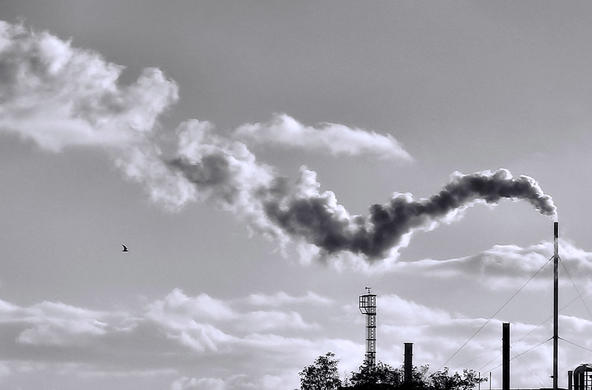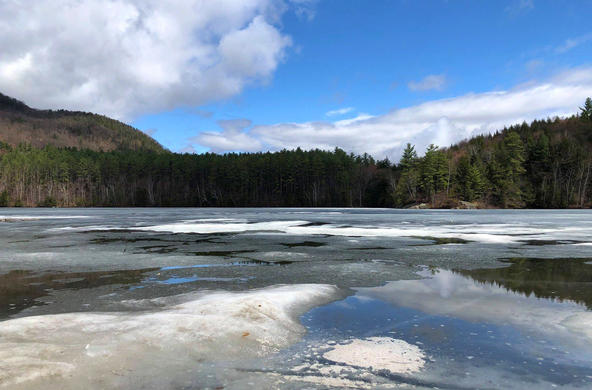(Madrid, Spain) The BBVA Frontiers of Knowledge Award in the Ecology and Conservation Biology category goes, in this ninth edition, to ecologists Gene Likens and Marten Scheffer for contributing decisively to what the jury describes as “one of the major challenges” of this scientific discipline: to understand and, where possible, anticipate ecosystem responses to human-induced alterations of the natural environment.
Likens revealed the impact across North America of acid rain, a phenomenon with severe environmental consequences, and Scheffer subsequently showed that human action, though gradual, can trigger abrupt and fundamental ecosystem shifts of a potentially irreversible nature. The work of the American and Dutch ecologists is instrumental in informing decisions on how to confront pollution risks, manage ecosystems safely, and restore ecosystems after serious deterioration.
Working independently, Likens and Scheffer have, says the jury, contributed to understanding and finding solutions for “gradual, abrupt, and potentially irreversible ecosystem change” in response to pollution and other ecological threats. Together, the two scientists “have transformed our understanding of how human activities are changing the structure and function of natural ecosystems, and provided tools to inform ecosystem management.”
The work done by Gene Likens, founding president of the Cary Institute of Ecosystem Studies in New York, “was instrumental to develop effective policies to reduce the acid rain problem,” according to the prize jury. His discovery, published in 1974, paved the way for measures like the Clean Air Act Amendment of 1990, “with great impact on environmental law and clean-energy research.”
Likens was also a pioneer in long-term experimental studies spanning an entire ecosystem (such as a drainage basin), and the use of decade-long measurements (instead of the two- or three-year standard length of most research projects). The discovery of acid rain in the United States dates from the early 1970s, and Likens’ continuing research in the same zone has provided proof that the resulting harm is not only intensive but lasting.
The original finding, Likens recalls, was entirely a product of chance. He and his team were studying forest lakes in New Hampshire when they detected acidity levels in rainwater samples a hundred times greater than expected. “It was quite a shock. We didn’t know the causes of the problem, or how far it might extend,” he relates. It took them almost ten years to confirm the link with pollutant emissions, primarily those released by the burning of fossil fuels.
They published their results in Science in 1974, warning that the scale of the problem was still largely uncharted. This is considered one of the first scientific discoveries to have ushered in successful environmental legislation.
“Acid rain is a serious environmental problem that affects water, soil, forests ….” Likens explains. “In the United States we have achieved a notable reduction in the main compound causing acid rain, and the acidity of rain and snow has decreased by 80%. But acid rain has been falling for many years, which has made the soil far more sensitive to other impacts.”
About the BBVA Foundation Frontiers of Knowledge Awards
The BBVA Foundation has as its core objectives the promotion of scientific knowledge, the transmission to society of scientific and technological culture, and the recognition of talent and excellence across a broad spectrum of disciplines, from science to the arts and humanities.
The BBVA Foundation Frontiers of Knowledge Awards were established in 2008 to recognize outstanding contributions in a range of scientific, technological and artistic areas, along with knowledge-based responses to the central challenges of our times. The areas covered by the Frontiers Awards are congruent with the knowledge map of the 21st century, in terms of the disciplines they address and their assertion of the value of cross-disciplinary interaction.





